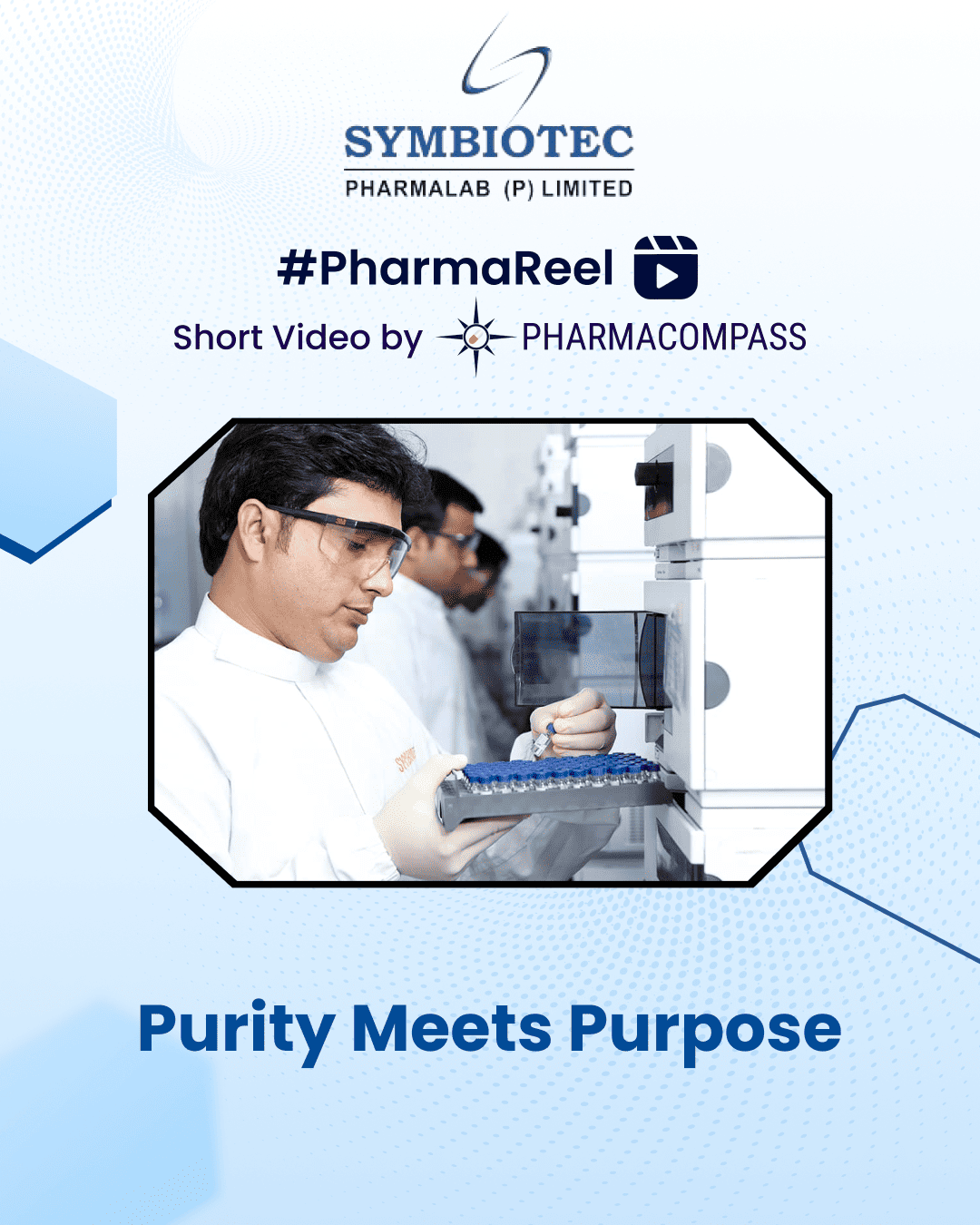BLOG
MARKET INTEL by PharmaCompass
CONTENT by Suppliers
- Interview #SpeakPharma
- Video #SupplierSpotlight
- Vlog #PharmaReel
- Company Bio #AboutSupplier
- Service Bio #AboutCapabilities
News
Create content with us, ask us

01 Overview
02 Overview
03 Overview
04 Overview
05 Overview
06 Overview
07 Overview
08 Overview
09 Overview
10 Overview

01 AUPA Biopharm
02 Aenova Group
03 Ardena
04 Atral
05 Aurigene Pharmaceutical Services
06 Curida AS
07 Curtis Health Caps
08 DPT Laboratories, Ltd
09 Delorbis Pharmaceuticals
10 Douglas CDMO
11 Ethypharm
12 Famar
13 Fareva
14 Halo Pharmaceutical
15 Injectalia Srl
16 JGL d.d
17 LGM Pharma
18 Labiana Life Sciences S.A
19 Lecifarma
20 Mikart
21 Noveayr Therapeutics
22 ORIT LABS LLC
23 One Pharma
24 Pharmatis
25 Priyans Drugs
26 Quotient Sciences
27 Saneca Pharmaceuticals
28 Sentiss Pharma
29 Servier
30 Tianjin Hankang Pharmaceutical Biotechnology
31 Torrent Pharmaceuticals Limited
32 TriRx Pharmaceutical Services
33 Unither Pharmaceuticals
34 Vici Health Sciences

01 Belgium
02 China
03 Croatia
04 Cyprus
05 France
06 France
07 Germany
08 Greece
09 Greece
10 India
11 Italy
12 Luxembourg
13 New Zealand
14 Norway
15 Poland
16 Portugal
17 Singapore
18 Slovakia
19 Spain
20 Taiwan
21 U.S.A
22 U.S.A
23 U.S.A
24 U.S.A
25 United Kingdom
26 United Kingdom
- Analytical > Analytical Method Development
- Analytical > Analytical Testing Services > Inhalation Products
- Analytical > BioAnalytical Services
- API & Drug Product Development > API Development
- API & Drug Product Development > API Development > Antibody Drug Conjugate
- API & Drug Product Development > API Development > Fine Chemical / Intermediate
- API & Drug Product Development > API Development > High Potency APIs (HPAPIs)
- API & Drug Product Development > API Development > Impurity / Reference Standard
- API & Drug Product Development > API Development > Oligonucleotide / Polynucleotide
- API & Drug Product Development > API Development > Oligosaccharides & Polysaccharides
- API & Drug Product Development > API Development > Overview
- API & Drug Product Development > API Development > Process Development & Optimization
- API & Drug Product Development > API Development > Protein / Peptide
- API & Drug Product Development > API Development > Separation & Purification
- API & Drug Product Development > API Development > Small Molecules
- API & Drug Product Development > API Development > Spray Drying
- API & Drug Product Development > Formulation Development
- API & Drug Product Development > Formulation Development > Buccal / Orodispersible
- API & Drug Product Development > Formulation Development > Capsule
- API & Drug Product Development > Formulation Development > Chewable / Suckable
- API & Drug Product Development > Formulation Development > Clinical Supply
- API & Drug Product Development > Formulation Development > Compounding
- API & Drug Product Development > Formulation Development > Controlled / Immediate / Modified Release
- API & Drug Product Development > Formulation Development > Controlled Substance
- API & Drug Product Development > Formulation Development > Granule / Pellets
- API & Drug Product Development > Formulation Development > Inhalation / Nasal
- API & Drug Product Development > Formulation Development > Injectable / Parenteral
- API & Drug Product Development > Formulation Development > Liquid Formulation
- API & Drug Product Development > Formulation Development > Lyophilization
- API & Drug Product Development > Formulation Development > Ophthalmic
- API & Drug Product Development > Formulation Development > Pediatric Formulation
- API & Drug Product Development > Formulation Development > Scale-Up Capabilities
- API & Drug Product Development > Formulation Development > Sterile Liquid Formulation
- API & Drug Product Development > Formulation Development > Suspension
- API & Drug Product Development > Formulation Development > Tablet
- API & Drug Product Development > Formulation Development > Topical
- API & Drug Product Development > Preformulation & Material Science > Particle Size Reduction & Micronization
- API & Drug Product Development > Preformulation & Material Science > Polymorph & Crystal Screening
- API & Drug Product Development > Preformulation & Material Science > Solubility Assessment & Enhancement
- API & Drug Product Development > Preformulation & Material Science > Taste Masking
- API Manufacturing > Antibiotic
- API Manufacturing > Antibody Drug Conjugate
- API Manufacturing > Biologics, Bioprocess & Fermentation
- API Manufacturing > Chiral Synthesis
- API Manufacturing > Clinical Supply
- API Manufacturing > Continuous Flow Process
- API Manufacturing > Contract Manufacturing
- API Manufacturing > Controlled Substance
- API Manufacturing > Custom Synthesis & Manufacturing
- API Manufacturing > Cytotoxic Compound
- API Manufacturing > Drying > Spray Drying
- API Manufacturing > Fine Chemical / Intermediate
- API Manufacturing > GMP Manufacturing
- API Manufacturing > Hazardous Chemistry
- API Manufacturing > High Potency APIs (HPAPIs)
- API Manufacturing > Micronization
- API Manufacturing > Oligonucleotide / Polynucleotide
- API Manufacturing > Oligosaccharides & Polysaccharides
- API Manufacturing > Organometallic Chemistry
- API Manufacturing > Organometallic Chemistry > Cyanation
- API Manufacturing > Organometallic Chemistry > Metal Hydride Reduction
- API Manufacturing > Ozonolysis
- API Manufacturing > Process Development & Optimization
- API Manufacturing > Protein / Peptide > Synthesis
- API Manufacturing > Reference Standard
- API Manufacturing > Scale Up
- API Manufacturing > Separation & Purification
- API Manufacturing > Small Molecules
- Clinical Trials > Compliance, Regulatory & Consulting
- Clinical Trials > Packaging & Logistics
- Clinical Trials > Medical Writing & Language Translation
- Clinical Trials > Patient / Investigator Recruitment
- Clinical Trials > Technology / Data / Analytics
- Drug Product Manufacturing > Biologic Drugs
- Drug Product Manufacturing > Capsule
- Drug Product Manufacturing > Capsule > Steroid / Hormone
- Drug Product Manufacturing > Compounding
- Drug Product Manufacturing > Cream / Lotion / Ointment
- Drug Product Manufacturing > Emulsion > Overview
- Drug Product Manufacturing > Gel > Overview
- Drug Product Manufacturing > Granule / Pellet
- Drug Product Manufacturing > Injectable / Parenteral
- Drug Product Manufacturing > Injectable / Parenteral > Overview
- Drug Product Manufacturing > Injectable / Parenteral > Pre-Filled Syringe
- Drug Product Manufacturing > Liquid
- Drug Product Manufacturing > Lyophilization
- Drug Product Manufacturing > Nasal
- Drug Product Manufacturing > Softgel Capsule
- Drug Product Manufacturing > Solution > Overview
- Drug Product Manufacturing > Spray
- Drug Product Manufacturing > Suppository
- Drug Product Manufacturing > Suspension > Overview
- Drug Product Manufacturing > Syrup
- Drug Product Manufacturing > Tablet
- Drug Product Manufacturing > Technologies
- Drug Product Manufacturing > Technologies > Orally Disintegrating Tablets (ODTs)
- Drug Product Manufacturing > Technologies > Taste Masking
- Packaging > Clinical Services
- Packaging > Contract Services
- Packaging > Contract Services > Serialization Compliance
- Packaging > Logistic Services
- Empty Capsules
- Empty Capsules > Clinical Supply
- Empty Capsules > HardGel
- Empty Capsules > Inhalation
- Emulsifying Agents
- Soft Gelatin
- Solubilizers
Overview of contract manufacturing services for oral solutions (pharmaceutical liquid dosage forms) & packaging of solutions in stick packs & sachets.
Q1. What are oral liquids and what are the different types?
Liquid dosage forms are pourable pharmaceutical formulations which contain a mixture of active drug components and non-active components (excipients) dissolved or suspended in a suitable solvent or mixtures of solvents. Liquid dosage forms are prepared for both oral as well as parenteral routes of drug delivery. Oral liquids are non sterile, whereas liquids administered by the parenteral route are available in sterile and nonsterile formulations.
Oral liquids are homogeneous liquid preparations, usually containing a solution, an emulsion or a suspension of one or more active ingredients in a suitable liquid base. They are prepared for oral administration either as concentrated dosage forms or as diluted dosage forms. The properties of the active pharmaceutical ingredients (APIs) selected for oral administration, usually dominate and often restrict the choice of the type of liquid oral formulation used.
Oral liquid dosage forms are better than tablets or other oral solid dosage forms for patients that have difficulty in swallowing. This makes them the preferred dosage form for pediatric and geriatric patients. Liquids also absorb faster than solids in body fluids and offer flexibility in dosing. Furthermore, liquids are more palatable than solid dosage forms. These advantages offered by oral liquids make them an attractive dosage form for drug delivery.
Oral liquid dosage forms are often classified according to their physical properties as solutions, syrups, suspensions, elixirs and drops, amongst other formulations. Out of these liquid orals, suspensions and solutions are the most common.
Classification of Oral Liquids
- Solutions
Pharmaceutical solutions are defined as liquid preparations in which active ingredients and various excipients are dissolved in a given solvent. Non sterile solutions are extensively used as dosage forms for oral administration of therapeutic concoctions.
- Suspensions
Oral suspensions are liquid formulations containing one or more active ingredients suspended in a sweetened, flavoured, sometimes coloured, and usually, viscous vehicle intended for oral administration. One key advantage of a liquid suspension is its ability to preserve the structure of the API without any dissolution, while still delivering it to the patient in a liquid form that is easy to swallow.
- Emulsions
Emulsions are heterogeneous and biphasic, thermodynamically unstable systems containing two immiscible fluids; for e.g. fat and water. While emulsion formulations are not popular for oral ingestion, they are increasingly used in the preparation of parenteral & topical dosage forms such as ointments, creams, and lotions.
- Drops
Drops are liquid preparations for oral use that are intended to be administered in small volumes with the aid of a suitable measuring device. They may be solutions, suspensions or emulsions.
Q2. What are oral solutions and what are the benefits?
Solutions are used widely in the pharmaceutical industry for achieving drug delivery via different routes of administration; oral, parenteral, inhalable, etc. Oral pharmaceutical solutions can be classified into solution formulations, oral syrups, oral elixirs, linctuses and mouthwashes.
Types of Oral Pharmaceutical Solutions:
- Oral Elixirs
Elixirs are clear, sweetened hydroalcoholic liquids intended for oral use containing flavoring substances and active medicinal agents. Elixirs may be medicated or non medicated. Elixirs are popular as they can be prepared rapidly, achieve taste masking, and due to other favorable qualities.
- Oral Linctuses
Linctuses are syrupy or sticky solution preparations containing medicaments exerting local action on the mucous membrane of the throat. Oral linctuses are often used to formulate cough syrups.
- Mouth Washes/Gargles
Oral mouthwashes or gargles are solutions designed to treat infections and inflammations of the oral cavity. They are not meant to be swallowed.
- Oral Syrups
Pharmaceutical syrups are concentrated aqueous preparations or saturated solutions constituted of 85% sugar dissolved in water along with medicinal substrates or drugs. Syrups are intended for oral administration and remain widely popular due to their high stability, long shelf life, and relatively palatable taste.
- Oral Solutions
Oral solutions are clear liquid preparations for oral use containing one or more active pharmaceutical ingredients (API) dissolved in a suitable medium (pharmaceutical solvent).
Some Advantages of Oral Solutions:
- Therapeutic agents can easily be administered orally to individuals who have difficulty in swallowing, e.g. elderly patients, infants.
- Taste-masking of bitter therapeutic agents may be readily achieved.
- Increased absorption, which results in bioavailability enhancement; Solutions > Suspensions > Capsules > Compressed tablets
- Uniform dosing since they are uniform preparations.
- Ease in coloring, flavoring, sweetening, etc. They are usually pleasing in appearance to the patient because of their color and clarity.
- Reduced chances of causing irritation to the gastric mucosa, which may be caused by other oral formulations.
Q3. What are the steps involved in manufacturing oral solutions?
Whether it is a suspension or a solution, oral liquid dosage forms offer a number of advantages: They allow for individual dosing, are easy to swallow and are suitable for pediatric or geriatric applications.
On the other hand, formulators face considerable challenges concerning solubility, API stability in aqueous systems, or taste during the drug product development and manufacturing process. If that’s the case, it’s beneficial to outsource drug product development and manufacturing to contract manufacturers, CMOs and CDMOs.
Steps for Manufacturing Oral Solutions
Step 1: Raw Material Selection
(1) Solutes: Active Ingredients are the main solutes used in oral solutions. Many of these organic medicinal agents are either weak acids or weak bases, and their solubility depends to a large extent on the pH of the solvent.
Solutes other than the medicinal agent are also usually present in orally administered solutions. Pharmaceutical solutions may contain a range of excipients, each with a defined pharmaceutical purpose.
- Stabilizers
- Coloring Agent
- Flavoring Agent
- Preservatives
- Etc.
(2) Solvents: Solvents are selected to suit a particular solute on the basis of multiple factors; solubility , clarity, toxicity, viscosity, compatibility, chemical inertness, palatability, color, odor, economical feasibility, etc. Some commonly used solvents include:
- Water
- Aromatic Water
- Glycerin
- Medicated Vehicles
- Alcohols
Step 2: Liquid Oral Preparation of Continuous Phase
Step 3: Preparation of Dispersed Phase
Step 4: Solution Finished Product Preparation (Dissolving Solutes in Solvent)
Step 5: Packaging & Labelling
Once a solution is prepared it can be filled ino vials, bottles, ampoules, etc. via liquid filling machines. The most common packaging presentations for commercial oral liquid drug products are glass bottles, plastic bottles, practical single-dose sachets, powder and liquid stick packs, etc. Subsequently, they are labelled, branded and undergo further secondary packaging after which they are ready for distribution.
Methods of Preparing Solutions:
1. Simple Solutions
Simple solutions are prepared by dissolving solutes in a suitable solvent which may contain other ingredients which stabilize and solubilize active ingredients. Stirring or heating may be used.
2. Solution Oral Dosage Forms via Chemical Reactions
Chemical solutions are prepared by reacting (chemical reactions) two or more solutes with each other in a suitable solvent.
3. Solutions by Extraction
Extraction from vegetable or animal origin with water containing other substances. Preparations of this type may be classified as solutions but more often, they are referred to as extractives.
4. Solutions via Distillation
Distillation involves distilling volatile principles from a drug, inside a copper wire cage which allows the free passage of vapors and boiling water.
Q4. How are liquid stick packs beneficial in packaging oral solutions?
Stick packs are the ideal packaging solution for a wide range of powder, granule, liquid, gel and other specialist dosage forms. They provide a convenient, portable unit-dose solution for prescription and over-the-counter (OTC) medicines, as well as nutritional supplements.
Stick packs are a type of flexible pouch suitable for food, drink, and medical packaging. Generally, they take the form of a small pouch, packet, or tube made from a flexible film, so that they are easily opened, portable, and can be consumed virtually anywhere. The packs themselves are sealed on two shorts ends and have a seal down the back. Stick packs can be emptied almost completely, easily consumed and transported, and are eco-friendly making this type of packaging increasingly popular with consumers.
They require 10 % – 40 % less packaging material than equivalent rectangular or square pouches and are typically prepared for direct consumption to provide the complete recommended dose in a single serving. The above given qualities make stick packs ideal for geriatric and pediatric formulations, as well as specialist dosage forms.
Liquid stick-packs for oral liquids such as solutions appeal to consumers with modern and active lifestyles. Today an active, mobile lifestyle is the norm for most people, making the need for portable solutions, including single unit, premeasured oral dosage forms such as stick packs and liquid sachets (practical single-dose sachets) a must. Furthermore, liquid stick packaging is the new trend in the packaging of ready to use single unit oral dosage forms that are ideal for small and medium doses (filling quantity 10 to 15 ml).
There are various contract packagers with multi-lane packaging facilities offering pharmaceutical contract packaging for oral solutions and other specialist dosage forms in liquid stick packs. Stickpack contract packaging service providers having multi-lane packaging equipment offer a wide variety of powder and liquid stick packaging of various sizes and configurations for solutions.
Some other advantages offered by liquid stick packaging include:
- Versatile options for formulating high doses of actives, including different API combinations, modified release mechanisms, taste-masking technologies and mouth-feel improvements
- Extensive range of dimensions and formulation options to support one's custom design requirements.
- Convenient, slim, compact and easy usage
- No spillage
- Guaranteed freshness
- Unique, eye catching packaging good for branding
- Accurate dosing
- No wastage
- Eco-friendliness
Q5. Who are the leading contract manufacturers offering oral solutions?
There are numerous CDMOs and CMOs offering pharmaceutical contract manufacturing for oral solutions as well as powder and liquid stick packaging solutions.
Unither Pharmaceuticals
Unither has more than 25 years of experience in contract development and manufacturing services for liquid formulations such as solutions, suspensions and liquid stick-packs along with solid & semisolid dosage forms.
Their range of non sterile liquids for oral administration is adapted to modern life and respond to the difficulties encountered by patients when taking their medication (dysphagia, bad taste, tablet size). They offer contract manufacturing for oral solutions along with Blow-Fill-Seal (BFS), liquid sachets (practical single-dose sachet), Unistick® liquid stick-packs, Unistick® powder stick packs, etc.
Polpharma
Polpharma B2B Unit is a world-class provider of high-quality pharmaceutical products and services. It provides a wide range of integrated solutions, including active pharmaceutical ingredients (API), finished dosage formulation (FDF) licensing and supply and pharmaceutical contract manufacturing and contract development and manufacturing services.
Polpharma B2B offers customized contract manufacturing of various liquid dosage forms such as contract manufacturing for oral solutions, syrups and suspensions.
JGL d.d
JGL was founded in Rijeka in 1991 as the first private pharmaceutical joint-stock company. Today, it offers products in nearly all technological forms and different legislative categories and operates in some forty foreign markets. They offer contract manufacturing for oral solutions along with solid and semi-solid dosage forms.
JGL has drug product development and manufacturing capabilities for non sterile solutions such as syrups and dermatological solutions, with in line filling & stickpack contract packaging processes, going up to mixing volumes of 100-1800 kg & commercial batch sizes of 5000-10,000 pcs.
Quotient Sciences
Quotient has vast experience across an array of dosage forms that they manufacture for registration and commercial supply, including oral solid dosage forms and oral solutions. They offer contract development and manufacturing services for oral solid dosage forms and up to 350L for liquid formats using an automated liquid filling line.All Suppliers
01
Pharma Service : Drug Product Manufacturing
02
Pharma Service : Drug Product Manufacturing
Pharma Service : Drug Product Manufacturing
03
Pharma Service : Drug Product Manufacturing
Pharma Service : Drug Product Manufacturing
04
Pharma Service : Drug Product Manufacturing
05
Pharma Service : Drug Product Manufacturing
Pharma Service : Drug Product Manufacturing
06
Pharma Service : Drug Product Manufacturing
07
Pharma Service : Drug Product Manufacturing
08
Pharma Service : Drug Product Manufacturing
Pharma Service : Drug Product Manufacturing
09
Pharma Service : Drug Product Manufacturing
10
Pharma Service : Drug Product Manufacturing
11
Pharma Service : Drug Product Manufacturing
12
Pharma Service : Drug Product Manufacturing
Pharma Service : Drug Product Manufacturing
13
Pharma Service : Drug Product Manufacturing
Pharma Service : Drug Product Manufacturing
14
Pharma Service : Drug Product Manufacturing
15
Pharma Service : Drug Product Manufacturing
Pharma Service : Drug Product Manufacturing
16
Pharma Service : Drug Product Manufacturing
17
Pharma Service : Drug Product Manufacturing
18
Pharma Service : Drug Product Manufacturing
19
Pharma Service : Drug Product Manufacturing
20
Pharma Service : Drug Product Manufacturing
21
Pharma Service : Drug Product Manufacturing
Pharma Service : Drug Product Manufacturing
22
Pharma Service : Drug Product Manufacturing
Pharma Service : Drug Product Manufacturing
23
Pharma Service : Drug Product Manufacturing
24
Pharma Service : Drug Product Manufacturing
25
Pharma Service : Drug Product Manufacturing
26
Pharma Service : Drug Product Manufacturing
Pharma Service : Drug Product Manufacturing
27
Pharma Service : Drug Product Manufacturing
28
Pharma Service : Drug Product Manufacturing
Pharma Service : Drug Product Manufacturing
29
Pharma Service : Drug Product Manufacturing
Pharma Service : Drug Product Manufacturing
30
Pharma Service : Drug Product Manufacturing
31
Pharma Service : Drug Product Manufacturing
Pharma Service : Drug Product Manufacturing
32
Pharma Service : Drug Product Manufacturing
33
Pharma Service : Drug Product Manufacturing
34
Pharma Service : Drug Product Manufacturing
35
Pharma Service : Drug Product Manufacturing
36
Pharma Service : Drug Product Manufacturing
37
Pharma Service : Drug Product Manufacturing
Pharma Service : Drug Product Manufacturing





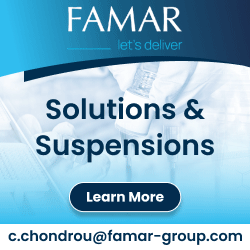

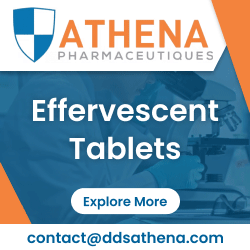
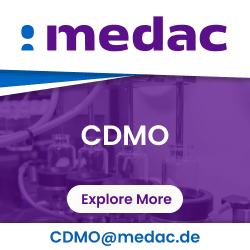
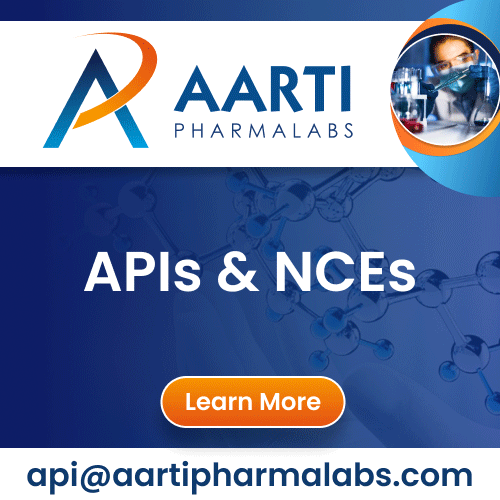
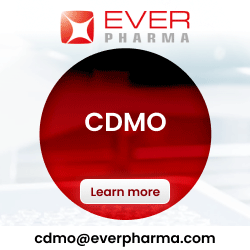




 FAMAR CDMO- From early development to commercial manufacturing.
FAMAR CDMO- From early development to commercial manufacturing.














